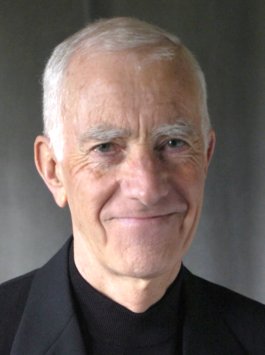In Memoriam
Albert Borgmann
Regents Professor of Philosophy


In a brief autobiographical essay, Albert Borgmann writes that he was born in Freiburg,Germany in 1937, “raised in the shadow of the gothic cathedral, of the Black Forest, and of the university where Husserl and Heidegger had been teaching.” Readers of Borgmann’s larger works may appreciate the way his opening lines eloquently communicate the message of each book as a whole, and this opening about his own life is no different. The three parts mark the largest themes of Borgmann’s philosophical career. First, the tangible setting and shape of our lives - our cities, buildings, and our everyday modes of life - matter a great deal and ought to be a central subject of philosophical concern. Second, the commanding presence of the natural world offers an important contrast and critique of much of our technological age. And lastly, he places his work in line with his philosophical forbearers’ focus on everyday life and the rise of a uniquely technological age.
Borgmann attended grade school in Freiburg and began his college career at the University of Freiburg, attending Heidegger's lectures in 1957, but later transferred to the University of Texas. He went on to earn an MA in German Literature from the University of Illinois, Urbana and a Ph.D. in Philosophy from the University of Munich, focusing his dissertation on the work of Catholic theologian Cardinal John Henry Newman. Borgmann then returned to the United States, marrying Nancy Jo Quasthoff. He briefly taught German Literature at the University of Illinois, and philosophy at DePaul University and then the University of Hawaii. In 1970 he settled with his family in Missoula, Montana. There he taught philosophy to generations of students at the University of Montana, publishing widely, and becoming Regents Professor in 1996, the third person to receive the honor in the university's history.
Early during his time in Montana, challenged and encouraged by colleagues such as Henry Bugbee in Montana and Carl Mitchem from the Society for Philosophy and Technology, Borgmann began to develop his own philosophical account of technology. This work resulted in his 1984 publication of Technology and the Character of Contemporary Life (TCCL), which immediately became a landmark text in the philosophy of technology. This work presents Borgmann’s understanding of how technology shapes everyday life, a pattern he calls “the device paradigm.” This pattern is not neutral, and it has led to shallower, less happy lives of consumption. Understanding this pattern of technology, however, allows us to constrain and direct technology in ways that preserve the goods and practices that constitute a good life, what Borgmann calls “focal things.”
Borgmann’s later books take up more specific topics, but each works to present an understanding of the influence of technology and the importance of focal things to a public audience. Holding onto Reality (1999), for instance, provides an in-depth history of information technology. Here Borgmann notes that the Information Age is distinct in that information, instead of merely telling us about the real world, has come to displace reality. For instance, recordings of music in our headphones become what music is, while the reality of performing live becomes sidelined to the perfection of the recording. The book is worthwhile simply for its history of the information technologies, but it’s greater message endures in the reminder that regular, skillful engagement with reality - the focal practices that make life uniquely fulfilling - is irreplaceable by a digital world.
Borgmann’s Real American Ethics (2006) is again written for a popular audience, focusing on how the physical setting of our lives - the ways we choose to build, move, and inhabit space - has profound moral implications for the kind and quality of lives we live. Instead of building in haphazard, uncritical ways that are inevitably dictated by the values of the device paradigm of our technological age, Borgmann encourages reflective, democratic decision-making that will work to physically shape our environments in ways that foster the enjoyment of those practices and relationships that are most important to achieving good lives.
The enduring value of Borgmann’s work has been its ability to offer readers around the world, from all walks of life, clarity and comprehension of both how technology has shaped their society and why the preservation of focal practices is so vital for human happiness. Although critical of technology as an often impoverishing moral force, Borgmann’s work never succumbs to cynicism or hopelessness. Instead, he offers the strongest reasons and encouragement for readers to defend and renew their love of the things that matter most. It is not a philosophy of despair, but a guide for the celebration of reality.
Although Borgmann published widely at the highest levels of philosophy, his central passion was for a philosophy that focused on the most pressing issues of everyday life and were accessible and useful to the public at large. Aside from teaching and publishing, Borgmann has been an influential force in state and local politics as well as the administration at the University of Montana. His legacy to come will surely be the immense work he has inspired of generations of philosophers dedicated to addressing the most pressing public problems of their time in ways that aid and improvise their communities at large.
Albert Borgmann passed away peacefully on May 7, 2023, surrounded by family at his Montana home bordering the Rattlesnake Wilderness.
